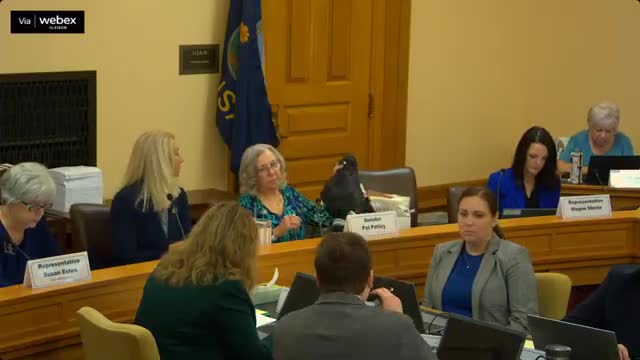Kansas Education Committee Reviews CTE Funding and Career Pathway Effectiveness
September 04, 2025 | Special Education and Related Services Funding Task Force, Task Forces, Committees, Legislative, Kansas
Thanks to Scribe from Workplace AI , all articles about Kansas are free for you to enjoy throughout 2025!

This article was created by AI using a video recording of the meeting. It summarizes the key points discussed, but for full details and context, please refer to the video of the full meeting. Link to Full Meeting
One of the key points raised was the distribution of CTE funding, which revealed that six districts received no funding at all, while 20 districts accounted for over half of the state's CTE waiting list. Notably, Wichita was identified as having the highest number of students waiting for CTE programs, with 259 students on the list. This situation raises concerns about equitable access to vocational training opportunities, especially for students in smaller districts that may lack the resources to offer comprehensive CTE programs.
Members of the task force discussed the financial challenges faced by districts in providing CTE programs. For instance, one representative noted that their district received only $70,000 in CTE funding but spent approximately $354,000 to support these programs. This discrepancy highlights the struggle many districts face in funding essential equipment and technology necessary for effective vocational training.
The conversation also touched on the importance of aligning CTE programs with workforce needs. Task force members emphasized the necessity of providing pathways for students who may not pursue traditional college routes but instead seek immediate employment opportunities. The discussion included references to the National Career Clusters Framework, which categorizes various vocational pathways and aims to guide educational offerings in alignment with industry demands.
Additionally, the task force explored the role of guidance counselors in helping students navigate their educational paths. There was a consensus that while CTE programs are vital for student engagement and success, there must also be a balance with academic requirements, particularly in foundational subjects like math and reading.
As the meeting concluded, members acknowledged the need for further data collection and analysis to better understand the effectiveness of CTE programs and their impact on student outcomes. The task force plans to continue its discussions, focusing on how to improve funding mechanisms and ensure that all students in Kansas have access to quality vocational education that prepares them for the workforce.
This meeting underscored the ongoing challenges and opportunities within Kansas's education system, particularly in the realm of career and technical education, as stakeholders work to create equitable and effective pathways for all students.
Converted from Education Funding Task Force 09/03/2025 meeting on September 04, 2025
Link to Full Meeting
Comments
View full meeting
This article is based on a recent meeting—watch the full video and explore the complete transcript for deeper insights into the discussion.
View full meeting
